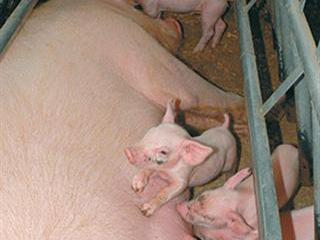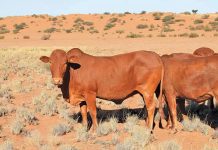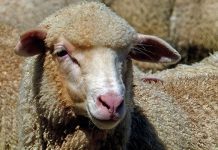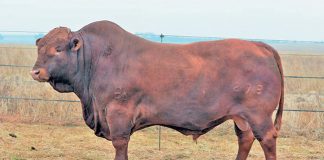
Pregnancy in sows lasts for about 16 weeks.From 18 to 22 days after their first service, watch the females for signs of restlessness, and in young females, swelling of the vulva. If the sow comes on heat, repeat the service procedure.If she’s been served successfully, place her with the "dry sows" (the pregnant ones).
It’s a good idea to have a boar among the dry sows in case one isn’t pregnant, as the boar will serve her when she comes on heat.Vaccinate pregnant sows with a booster for E.coli and treat for worms, lice and mange two or three weeks before the farrowing (birth) date.
In the last two weeks of pregnancy, watch the sow for signs of constipation – pain, straining to defecate, and small, hard faeces. Prevent or correct constipation by feeding wet bran and green feed.Put the sow into her farrowing pen about a week before her due date so she can become familiar with it. Give her plenty of bedding.
After farrowing increase feed to two to three times more than the usual amount. Watch for weight loss and give more feed if she becomes thin or is hungry. Feed at least three times a day to ensure she is well-fed without overloading her stomach.
Make sure the sow has unlimited water available – she can easily drink more than 30â„“ a day.Wean piglets at four to six weeks.The sow should be served the first time she comes on heat after the piglets are weaned, provided she’s in good condition. If she’s lost weight, rest her for three weeks with good food and, if she’s recovered, serve on the second heat.
Good sows can give six or more litters. Consider culling if the litter sizes become smaller or she has problems giving birth.
Source: Pigs for Profit: A Manual for Emerging Pig Farmers in South Africa, by Dr Jim Robinson and Dr Mary-Louise Penrith, sponsored by South African Pork Producers’ Organisation (SAPPO). For more information, contact Qeda Nyoka, SAPPO project manager for emerging farmers, on 012 361 3920.












